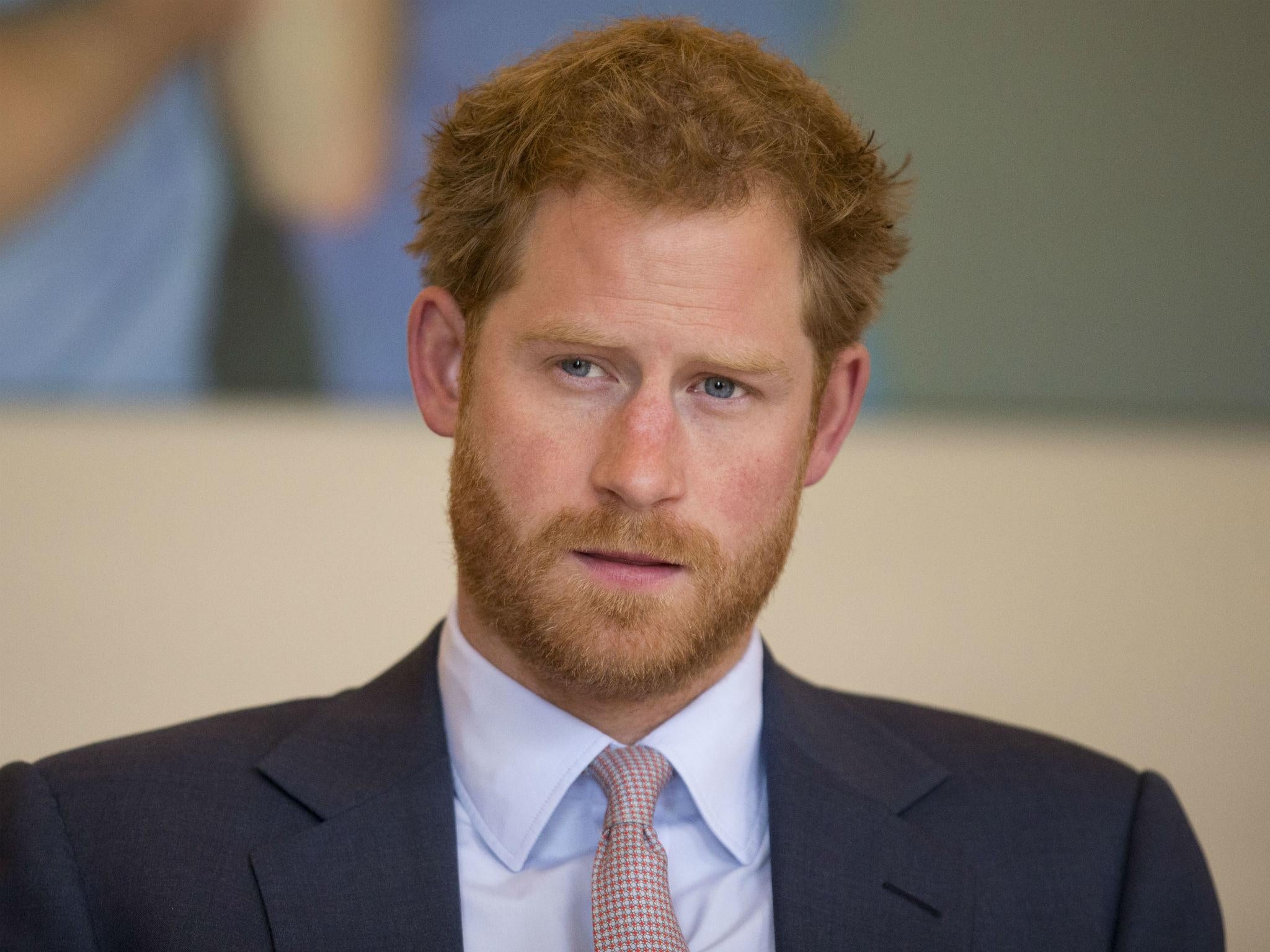Prince Harry praised by Terrence Higgins Trust for taking HIV test live on Facebook
Terrence Higgins Trust says Prince Harry 'could inspire a generation to take control of their sexual health'

Your support helps us to tell the story
From reproductive rights to climate change to Big Tech, The Independent is on the ground when the story is developing. Whether it's investigating the financials of Elon Musk's pro-Trump PAC or producing our latest documentary, 'The A Word', which shines a light on the American women fighting for reproductive rights, we know how important it is to parse out the facts from the messaging.
At such a critical moment in US history, we need reporters on the ground. Your donation allows us to keep sending journalists to speak to both sides of the story.
The Independent is trusted by Americans across the entire political spectrum. And unlike many other quality news outlets, we choose not to lock Americans out of our reporting and analysis with paywalls. We believe quality journalism should be available to everyone, paid for by those who can afford it.
Your support makes all the difference.Prince Harry has been praised by the Terrence Higgins Trust for taking a HIV test live on Facebook, with the charity heralding it a "groundbreaking moment in the fight against HIV".
The Prince’s test was broadcast live on the Royal Family’s Facebook channel from Guys, St Thomas’ hospital in London where a doctor was preparing to prick his finger for an instant test.
The quick test produces instant “non-reactive” or “reactive” results. If the test is non-reactive, it means its negative whereas reactive would require further testing.
The results came through in a matter of minutes, which the Prince said was “amazing”.
After receiving his non-reactive (negative) test result, the 31-year-old questioned what the process would be if the test was reactive and further tests showed a patient was HIV-positive, with the pair discussing how if a patient is HIV-positive they can continue to live a normal, long life by taking daily medication.
“Whether you’re a man woman, gay, straight, black, whatever, even ginger, why wouldn’t you come and have a test?” the Prince asked. “Even people who aren’t at risk, if we’re trying to de-stigmatise the testing, my understanding is we shouldn’t even be at the other side of the river, for instance, pointing to this part of London saying ‘you should get tested’ […] to normalise this situation surely it's better that everyone gets tested, why wouldn’t you?” the Prince said before urging viewers: “Let’s all get tested."
The Terrence Higgins Trust have praised Prince Harry's decision to get tested live on air, heralding it as “a groundbreaking moment in the fight against HIV”.
Ian Green, the HIV and Aids charity's chief executive said: “Not only does it show His Royal Highness’s genuine and personal commitment to tackling the HIV epidemic, it will amplify a message to millions all over the world: testing for HIV is easy, quick and nothing to be feared.
“[…] Too many people are either put off testing by the stigma that still surrounds HIV or simply do not think HIV is an issue anymore. Today, Prince Harry has got people talking about HIV again and has normalised HIV testing to a global audience. In doing so, he could inspire a generation to take control of their sexual health.
“Thanks to treatment, testing for HIV could stop you from getting seriously ill, enable you to live a normal lifespan and prevent you from passing the virus on to anyone else. That's why it’s so invaluable to have Prince Harry’s support as we aim to bust stigma and end the HIV epidemic.”
HIV and Aids is an issue close to Prince Harry’s heart and he has followed his mother Princess Diana in his commitment to tackling the illness and reducing the stigma which surrounds it. In 2006, he co-founded the charity Sentebale which works with children affected by the virus in Lesotho, Africa.
Join our commenting forum
Join thought-provoking conversations, follow other Independent readers and see their replies
0Comments